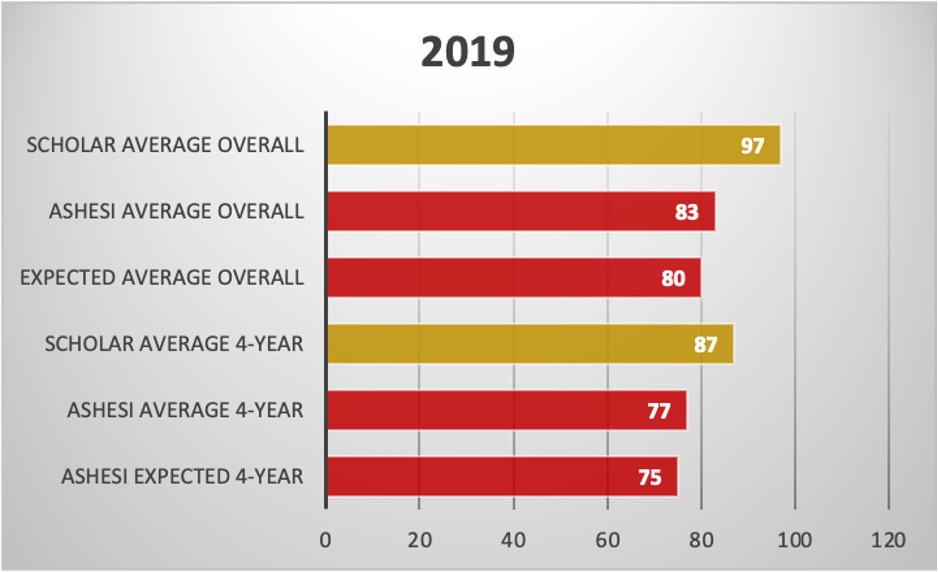The voices often missing in leadership in Africa and globally are those of women, the poor, and other minorities. Africa needs ethical, entrepreneurial leaders who understand local priorities and are equipped with the necessary skills and willingness to serve in government, industry and in our communities. Ashesi is intentional in cultivating the attitude of leadership as service in all its students. It offers core leadership seminars across the curriculum which culminate as community service in third year. The immersion into impoverished communities of the students’ choice provides an opportunity for students to create a legacy of change for the greater good. Ashesi is training and raising leaders who understand that a meaningful life is the ultimate and genuinely satisfying sense of fulfilment, where you use your strengths to uplift others or bring to life a purpose greater than yourself (Seligman, 2002).
Unfortunately, despite the faster-than-average sub-Saharan Africa (4.3%) growth rate in higher education enrollment compared to the global rate (2.8%), women, minorities and the poor remain highly excluded. Only six percent of youth, mainly male and/or the affluent in sub-Saharan Africa, attend college and become Africa’s future leaders. However, considering the many needs of Africa and the innumerable inventions yet to be innovated on the continent, we need many perspectives and thoughts from diverse individuals. Ashesi, therefore, with its mission to transform Africa, is intentional to recruit more women, minorities, and those from backgrounds where poverty is a factor.
Ashesi’s admissions team travels all over Ghana and other countries in Africa, such as Kenya and Zimbabwe, to over 15 girls’ high schools to recruit for our programs in Business Administration, Computer Science, Management Information Systems, and Engineering. The admissions team engages effectively with the high school heads and counsellors of girls’ schools, in addition to the co-educational high schools, to recruit more girls. To feed the pipeline of young Africans in technology fields, Ashesi also holds an annual summer workshop for equal numbers of high school boys and girls; both genders excel in lively technology and entrepreneurship activities under the mentorship of Ashesi students. Ashesi maintains an average of 48% girls in its programs, which are STEM disciplines, and it continues to strive towards 50%.
It takes commitment and intentionality to ensure diversity. In light of that, Ashesi also targets over 25 African countries each year to recruit bright and talented students who fall in the bottom two financial deciles. The countries include but are not limited to low and lower-middle income countries such as Ghana, Rwanda, Nigeria, Côte D’Ivoire, Liberia, Cameroon, Lesotho, and Egypt. Thanks to Ashesi’s Financial Aid scheme, the MasterCard Foundation, and other partners, Ashesi can afford to recruit and offer scholarships to students from diverse low-income communities across Africa. On average, 43% of the students at Ashesi are on full or partial scholarship.
The students on comprehensive scholarships often outperform the already high Ashesi expected 4-year graduation rate of 75% (average over three years) and expected average overall graduation rate of 80%. (See Ashesi’s graduation rate comparisons to expected for 2019 in Figure 1).
 Figure 1. Ashesi’s graduation rate comparisons to expected for 2019
Figure 1. Ashesi’s graduation rate comparisons to expected for 2019
Global organizations often focus on reaching large numbers of people in poverty. However, poverty reduction will not by itself transform and modernize the economies of African nations. To do that, we must better educate, broaden, and retain our middle classes. Africa needs homegrown professionals, engineers, and entrepreneurs who are highly capable and ethical. We need a leadership cohort that includes both talented students from families of relative privilege, as well as women, minorities, and the poor. We need students from economically successful families to eschew entitlement and narrow self-interest, and for their peers from marginalized communities to develop courage and confidence. This is the Ashesi students’ lived experience.